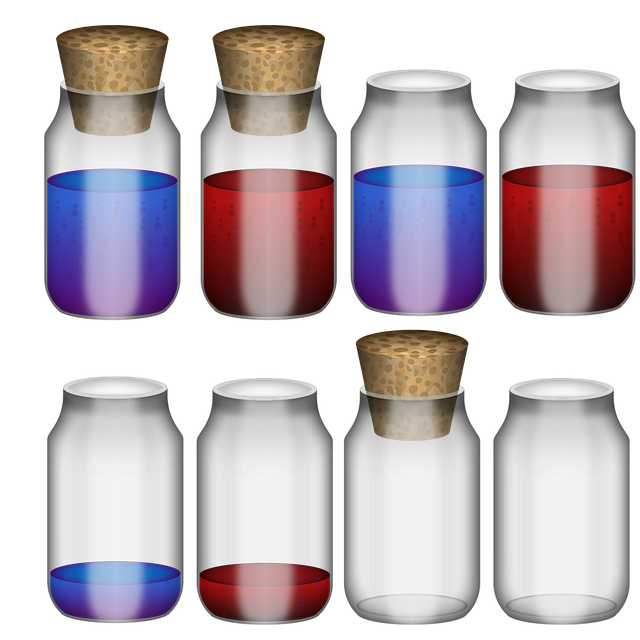Mental health assessments are key in addressing substance abuse by identifying co-occurring conditions like depression or trauma, enabling personalized treatment plans. Integrated services such as Crisis Intervention Training and Recovery Support Services empower professionals to provide tailored care, enhancing motivation for long-term sobriety. By uncovering root causes and adopting healthy habits, individuals can develop coping strategies, build resilience against relapse, and achieve improved overall well-being. Setting clear goals, engaging in therapeutic interventions like Group Counseling, and seeking support from various programs are effective ways to stay motivated during the journey to sustained sobriety.
Mental health assessments play a pivotal role in addressing substance abuse by uncovering the root causes behind these habits. This comprehensive guide explores the intricate link between mental well-being and addiction, focusing on how identifying underlying conditions can lead to lasting recovery. We delve into the transformative impact of such assessments, offering strategies for achieving and maintaining long-term sobriety, including effective ways to stay motivated throughout the journey.
- Understanding Mental Health Assessments: Unveiling the Connection to Substance Abuse
- The Impact of Identifying Underlying Conditions on Long-Term Sobriety
- Strategies for Staying Motivated: Nurturing a Future Free from Substance Abuse
Understanding Mental Health Assessments: Unveiling the Connection to Substance Abuse

Mental health assessments play a pivotal role in identifying the root causes behind substance abuse disorders. By delving into an individual’s psychological well-being, mental health professionals can uncover hidden conditions such as depression, anxiety, or trauma that often contribute to unhealthy coping mechanisms involving drugs and alcohol. These assessments provide a comprehensive understanding of a person’s unique challenges, allowing for tailored treatment plans that address both the addiction and underlying mental health issues simultaneously.
Staying motivated in long-term sobriety is made easier when individuals receive proper diagnosis and treatment for their co-occurring disorders. Crisis Intervention Training equips professionals with essential skills to support those in acute distress, while Recovery Support Services provide ongoing guidance and encouragement throughout the recovery journey. By integrating these services, we can ensure that those striving for addiction recovery receive comprehensive care tailored to their specific needs, enhancing their chances of achieving and maintaining lasting sobriety.
The Impact of Identifying Underlying Conditions on Long-Term Sobriety

Identifying underlying conditions is a critical step in achieving long-term sobriety. When mental health assessments uncover the root causes behind substance abuse, it empowers individuals to address these issues directly. This comprehensive approach goes beyond simply stopping the behavior; it involves treating the whole person. By understanding and managing co-occurring disorders or trauma, individuals can develop effective coping strategies and build resilience against relapse.
This process is further supported by various therapeutic interventions like Healthy Relationships Coaching in Early Sobriety, Group Counseling Sessions Fostering Accountability, Empathy, and Community among Peers in Recovery, and Trauma-Informed Care. These methods not only provide tools for staying motivated but also create a supportive network that encourages ongoing recovery. Ultimately, recognizing and addressing underlying conditions is key to sustaining sobriety and improving overall well-being.
Strategies for Staying Motivated: Nurturing a Future Free from Substance Abuse

Staying motivated on a journey towards long-term sobriety is an ongoing process that requires dedication and self-care. One effective strategy to maintain focus and drive is setting clear, achievable goals. Breaking down the path to recovery into manageable milestones can make the overall goal of staying sober seem less daunting. For instance, celebrating each month or year without substance abuse as a significant achievement can foster a sense of accomplishment and reinforce positive behavior.
Incorporating healthy habits such as regular exercise, mindfulness practices, and engaging in therapeutic activities like art or writing can also help sustain motivation. Healthy Relationships Coaching in Early Sobriety can provide crucial support during this transition phase, offering guidance on building a supportive network essential for recovery. Additionally, Nutrition Planning Services for Optimal Health Recovery and Holistic Wellness Programs Integrating Yoga, Meditation, and Nutrition focus on addressing the mind-body connection, promoting deep healing, and improving overall well-being—key elements in preventing relapse and nurturing a future free from substance abuse.
Mental health assessments play a pivotal role in navigating substance abuse, revealing the root causes behind addictive behaviors. By identifying and addressing these underlying conditions, individuals can foster lasting recovery and explore effective ways to stay motivated in their journey towards long-term sobriety. Through tailored strategies and ongoing support, it’s possible to transform lives, breaking free from the cycle of addiction and embracing a future filled with health and vitality.






